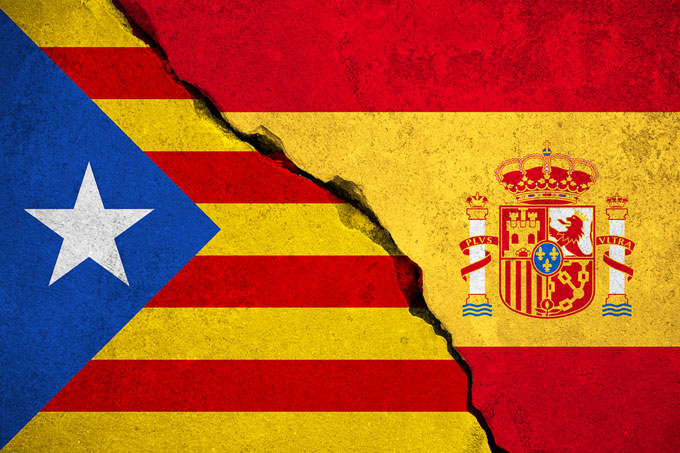Paul Anderson looks at the Spanish Government’s reaction to Catalan’s decision to hold a referendum on independence.
On 1 October 2017, the Catalan Government intends to hold a referendum on Catalonia’s independence from Spain. Despite the decision by the Spanish Constitutional Court that such a referendum is unconstitutional, and thus illegal, the Catalan Government has pressed ahead with preparing the vote, supported by a significant majority of the Catalan population (circa 80%) which want to vote on the issue.
The Spanish Government’s approach to the referendum has focused mainly on the judicial sphere. The Government argues that the secession of any autonomous community is prohibited by the Spanish Constitution, thus any attempt to do so is illegal and will be met with the full force of the law.
In the last few weeks, Spanish police forces in Catalonia have been ordered to inhibit any preparations of the vote going ahead, including confiscating posters, letters and ballots pertaining to the planned vote. In addition, any mayor or public official found to have facilitated the holding of the referendum have been threatened with arrest.
On Wednesday 20 September, the previously measured approach of the Spanish Government transmuted into a rather unproportional and even draconian response. Spanish police raided several offices and ministries of the Catalan Government and 14 people, including several elected figures, were arrested for their involvement in preparing the vote.
Speaking on Spanish television in the evening, Mariano Rajoy, the Spanish premier, explicitly supported the actions of the police and called upon the Catalan Government to abandon its radical and disobedient actions in order ‘to avoid greater evils’.
The actions of the Spanish Government, as was pointed out by several governmental officials yesterday, are within the realms of Spanish domestic law, but this new heavy-handed approach will indisputably poison any future relations between Spanish and Catalan elites.
Images of police raiding offices, arresting officials, confiscating ballot papers and forcefully removing protestors from the streets merely embolden the Catalan argument that the Spanish Government are pursuing an undemocratic policy towards the constitutional issue.
The aim of the Spanish Government appears to be short-term: to prevent the referendum from going ahead. This will, however, be a pyrrhic victory since the aggressive approach may indeed impede the vote from going ahead but will further embolden the determination and resilience of pro-independence supporters.
Indeed, while views in Catalonia differ over secession (support for independence, for instance, has yet to remain steady above 50%), the Spanish Government’s actions may move more supporters from the ‘no’ and ‘don’t know’ camps towards supporting independence.
It remains unclear whether the vote on 1 October will go ahead, and whether a majority of Catalans will firstly turn out to vote and secondly vote in favour of independence. Irrespective of the result, the Spanish Government will not recognise the legitimacy of the referendum and may well continue to pursue its new aggressive approach, including invoking Article 155 of the Constitution which would suspend Catalonia’s self-governing institutions. Such an unprecedented move would backfire and play into the hands of separatists.
Recent events underline that there is nothing inevitable about the independence of Catalonia, but moreover, and perhaps more interestingly, there is nothing guaranteed about the future territorial integrity of the Spanish state.
Paul Anderson is a PhD candidate in Politics and International Relations. His primary research focuses on constitutional politics, federalism and independence movements.
 Expert comment
Expert comment Jeanette Earl
Jeanette Earl 2024
2024


